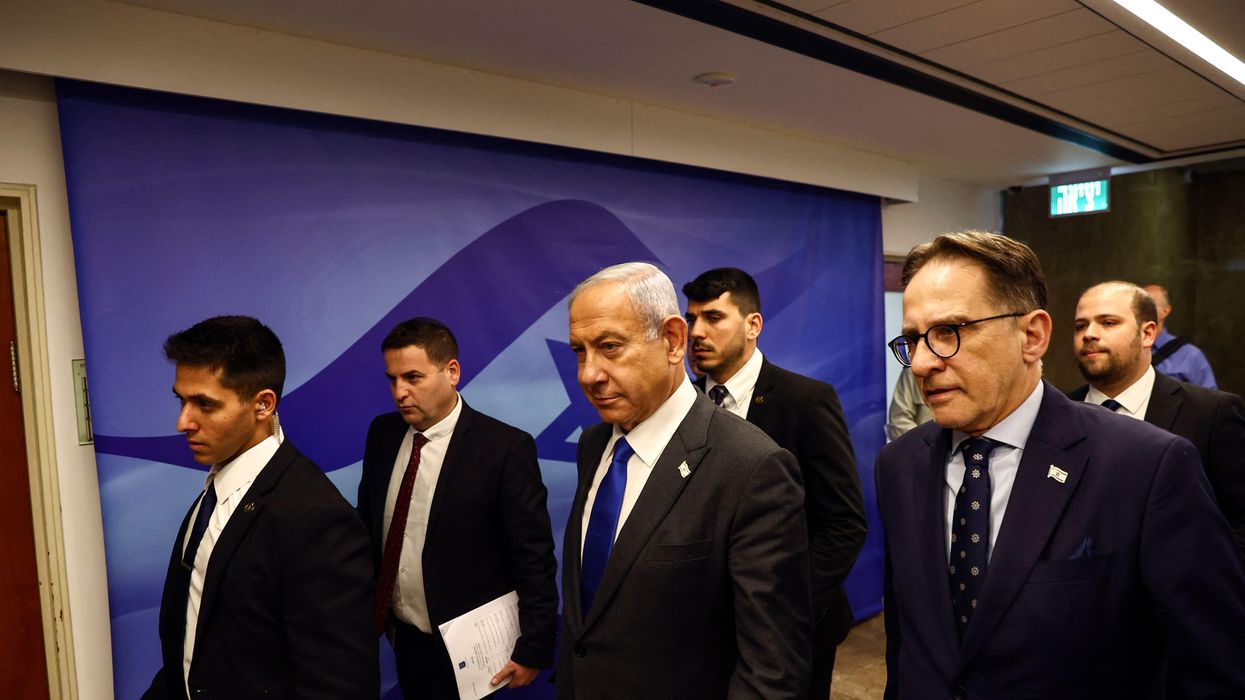"American officials quickly sent out word on Sunday morning that the United States was not responsible for the attack," the Times noted. "One official confirmed that it had been conducted by Israel but did not have details about the target."
The Times added that the "facility that was struck on Saturday was in the middle of the city and did not appear to be nuclear-related."
The Wall Street Journal also reported Sunday that Israel carried out the attack, which was launched hours before U.S. Secretary of State Antony Blinken arrived in the Middle East for planned trips to Israel, Egypt, and the occupied West Bank.
Last week, CIA Director William Burns made an unannounced trip to Israel to discuss "Iran and other regional issues," according to the Journal.
Jamal Abdi, president of the National Iranian American Council (NIAC), said in a statement that he is "deeply concerned by the gathering clouds of war in the Middle East."
"This latest act of sabotage conducted via a military attack inside Iran is a dangerous escalation and should be cause for concern for everyone who opposes war," said Abdi. "War will only further empower the most violent and repressive forces inside Iran at the expense of ordinary Iranians demanding freedom, and will embolden reactionary elements in Iran, Israel, Saudi Arabia, and the U.S."
"It is vital that we call for all sides to exercise restraint and to prioritize non-military solutions to the tensions threatening the region."
Israel's latest attack inside Iran's borders came after negotiations aimed at bringing the U.S. back into the Iran nuclear accord—which former President Donald Trump violated in 2018—hit a wall. President Joe Biden told a rallygoer in November that the Iran deal "is dead, but we're not gonna announce it."
Israel's spy agency has made clear that a newly negotiated nuclear accord would not stop its attacks on Iran.
"Even if a nuclear deal is signed, it will not give Iran immunity from the Mossad operations," Mossad chief David Barnea said in September. "We won't take part in this charade and we don't close our eyes to the proven truth."
Earlier this month, Netanyahu—a longtime Iran hawk who has been making false predictions about Tehran's supposed nuclear bomb ambitions for years—vowed to "act powerfully and openly on the international level against the return to the nuclear agreement."
In the absence of a nuclear agreement, the Journal reported Sunday that the U.S. and Israel are looking for "new ways to contain" Iran, which condemned the Saturday attack as "cowardly."
Citing the Journal's story, Trita Parsi of the Quincy Institute for Responsible Statecraft tweeted Sunday that "unlike before, when U.S. officials stayed silent or only confirmed Israel's role in attacks on Iran days later, now U.S. officials immediately name Israel and appear to hint that it is part of a joint effort to 'contain' Iran."
"War is clearly back on the agenda," Parsi added.
Abdi of NIAC echoed that warning, arguing that "the Islamic Republic's brutal crackdown against the Iranian people, its assistance in Russia's illegal invasion of Ukraine, and its rapidly expanding nuclear program freed from the restraints of the JCPOA have pushed tensions to a boiling point."
"This, coupled with the rise of a hardline administration in Israel that appears determined to push the envelope militarily, an increasingly assertive Saudi royal family, and a U.S. that has been unable to turn the page on the Trump administration's destabilizing Middle East policies, makes for an exceedingly volatile cocktail," Abdi said. "For those of us who favor democracy, human rights, and peace, it is vital that we call for all sides to exercise restraint and to prioritize non-military solutions to the tensions threatening the region."



